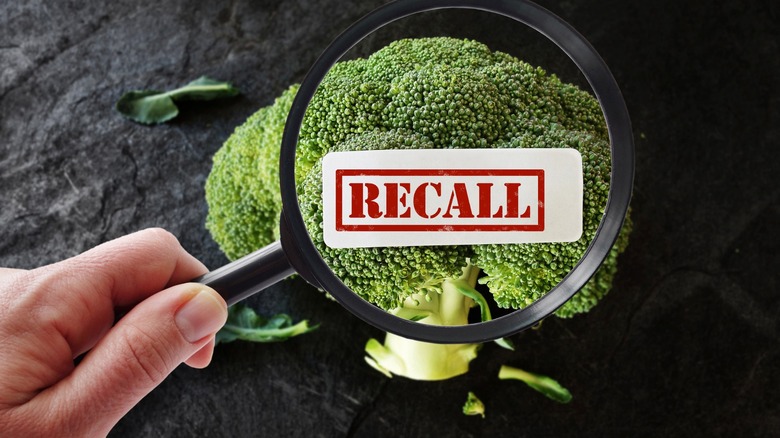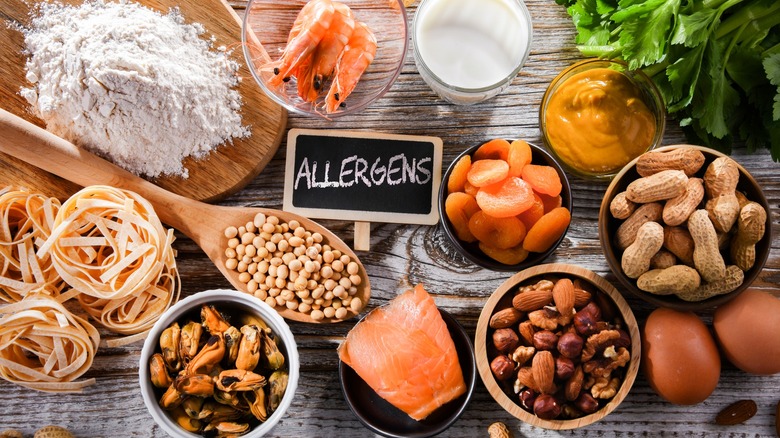What The Increasing Recalls Actually Mean For Food Safety
The food production industry has been having a rough go of it lately. McDonald's is still trying to attract customers after its E. coli outbreak, and retailers recently experienced a recall on vegetable medleys due to E. coli as well. Aldi and Walmart recalled produce because of a listeria outbreak earlier this year. This is just a handful of the numerous food recalls that have occurred this year.
According to a recent Gallup poll, Americans have less faith in governmental agencies keeping our meat and veggies toxin-free than ever before. About 42% of respondents have either not much or no confidence at all that our food is being safely regulated. So, have the departments tasked with keeping our food supply protected failed us, or is something else at work here?
Part of the reason for the U.S. witnessing the most food recalls this year since 2019 is that institutions monitoring the safety of our edibles are getting better at identifying potentially harmful situations, including the Department of Agriculture and the Food and Drug Administration. Both have used increasingly better technology to identify issues, communicate with each other, and alert consumers. Meanwhile, the Centers for Disease Control and Prevention has made serious strides in identifying the sources of bacterial outbreaks with whole genome sequencing. Essentially, the organizations that regulate food safety have gotten better at their job. In doing so, they are discovering more problems that may have been there all along.
Not all food recalls are linked to outbreaks
Just because a recall is issued doesn't necessarily mean that a food-related outbreak has occurred (by the way, an outbreak is defined as two or more people becoming ill). Undeclared allergens and physical contaminants, like when Trader Joe's recalled its Chicken Soup Dumplings due to plastic bits found in the product, will initiate a food recall even when no one might have been affected by the products. Sometimes, these issues are discovered by companies before any regulatory agency is made aware.
Ultimately, it is up to the businesses supplying products to the masses to make sure nothing becomes contaminated. Production companies and government departments work hand in hand to ensure the safety of our food by discovering when something has gone wrong, but the problem often starts at the source. As technology progresses and businesses implement more stringent standards for production, we may well see the number of food recalls drop in coming years. Until then, take these recent recalls as a sign that food safety is actually on the rise.

